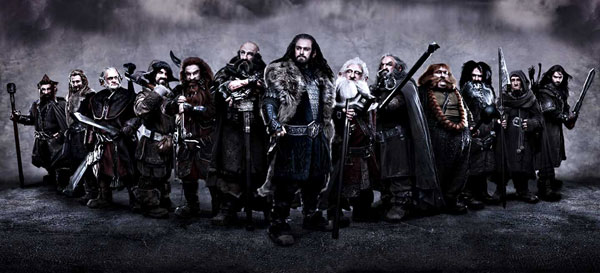 “In a hole in the ground lived a hobbit.”
“In a hole in the ground lived a hobbit.”
When Oxford University don John Ronald Reuel Tolkien wrote down these words on a blank sheet of paper in 1937, he doubtless had no idea that the bedtime story he'd created for his four children and set in a land called Middle Earth would morph into a worldwide phenomenon.
But morph it did. While The Hobbit was published to great acclaim in 1937, it was Tolkien's The Lord of the Rings trilogy that went on to become international bestsellers. Ironically, their success relegated The Hobbit to an afterthought to many, a quaint children's story hardly comparable to the great trilogy.
Of course, anyone who has seriously examined The Hobbit knows otherwise, that the book is a thrilling adventure in its own right, with richly drawn characters and subtle layers of meaning. Now Peter Jackson, the director of the three Lord of the Rings movies that appeared in the 2000s, is helming an ambitious Hobbit trilogy. The first instalment—An Unexpected Journey—is now in theatres.
The Adventure Begins
Bilbo Baggins (Martin Freeman) is a perfectly respectable hobbit who would never dream of doing anything with even a whiff of adventure in it. He's quite content with his pipe, his prized pocket handkerchief collection and six meals a day.
All that changes when the wizard Gandalf (Ian McKellen) and 13 dwarves appear on Bilbo's doorstep one morning. They're not there just for the tea: They enlist Bilbo in their quest to retrieve a vast cache of treasure from Smaug the Magnificent (Benedict Cumberbatch), a fearsome dragon whose lair lies many hundreds of furlongs away in the wild eastern lands.
For someone who had never ventured outside the boundaries of his own beloved Shire, that quest would sound too daunting to take on. But Bilbo has always harboured a streak of adventure he's managed to keep tamped down. And so, without any real idea why, he eagerly takes part in the quest.
The party faces deadly trolls, giant wolves and vicious goblins. But help is also at hand, in the form of kindly elves and benevolent eagles. After many trials, our band makes it to the outer marches of Smaug's lair, where the adventure will truly begin.
Christian Sensibility
Tolkien, like his Oxford colleague C.S. Lewis of The Chronicles of Narnia fame, was a Christian whose sensibilities showed throughout his work.
Nowhere is this more evident than in the growth of Bilbo's character over the course of the quest. As the adventure unfolds, we find the timid hobbit stepping up to assume the leadership of the quest in Gandalf's absence, much to the dwarves' surprise. Indeed, he becomes quite courageous and his actions, unlike the dwarves', are marked by kindness and selflessness.
Bilbo's newfound maturity is shown to great effect in how he deals with a strange creature named Gollum (Andy Serkis), who figures prominently in the later series of books and movies.
Trapped and separated from his friends by Gollum, Bilbo is at first in despair. But as he gathers his resolve and realizes he can only count on himself to get out of the situation he is in, Bilbo faces down his fears. Dagger in hand, Bilbo could easily have reacted with violence to escape his tormentor. Instead, he sees Gollum through a prism of love, not hate, and by doing so, pities him.
Understanding that any cycle of violence can only end with grace and mercy, Bilbo elects to simply escape from Gollum's clutches and rejoin his comrades.
Bilbo's decision has ramifications not just for his small band of adventurers but for the history of Middle Earth itself. It's a lesson we all can take to heart on our own journeys.









Leave a Comment